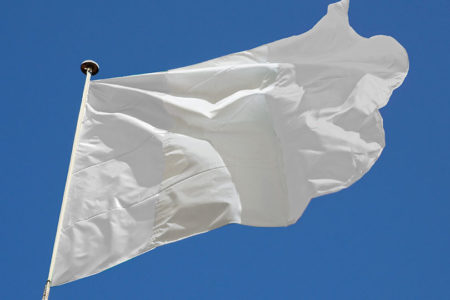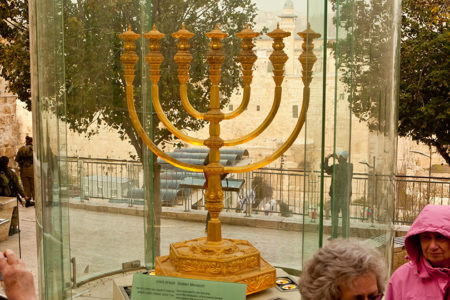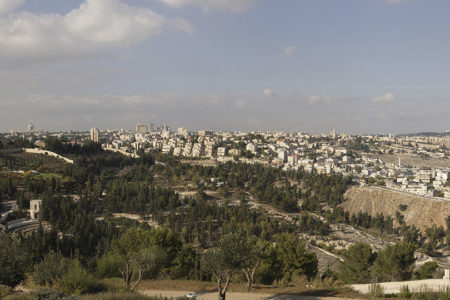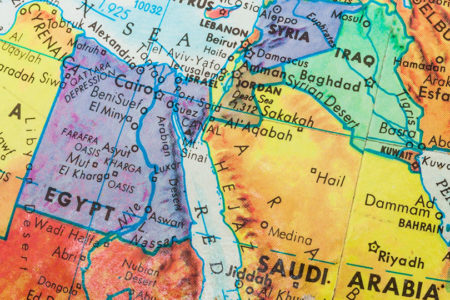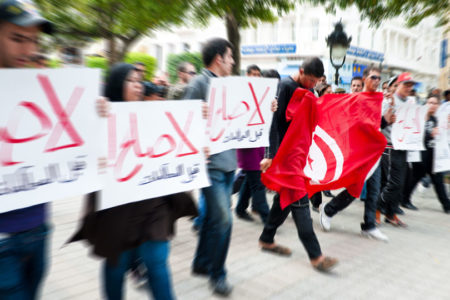Eye on the Middle East May/Jun 2012
According to a poll taken in November 2011 by the European Commission—the executive body of the European Union—15 European countries believe Israel is the greatest threat to world peace. The Organisation (sic) of Islamic Cooperation, a block of 57 Islamic nations with a permanent delegation to the UN, agrees. It has proposed and helped pass more human rights resolutions against Israel than against all other nations combined. On paper, Israel is viewed as a greater threat to world peace than North Korea, Iran, and Afghanistan.
When addressing the U.S. Congress last year, Israeli Prime Minister Benjamin Netanyahu presented a strikingly different view. “Israel,” he said, “is not what is wrong with the Middle East; Israel is what is right in the Middle East.” He received a standing ovation.
So which is it? Is Israel an evil nation endangering world peace or a light shining in a dark place? As fictional detective Joe Friday of the popular 1960s television show Dragnet used to say, “Just the facts.” Here are some of the facts:
- When an earthquake and tsunami struck Japan in 2011, Israel set up the first hospital in the quake zone, donated tons of emergency aid, and dispatched a civilian search-and-rescue team to aid the victims.
- When Haiti experienced a devastating earthquake in 2010, Israel was the first country to set up a fully operational triage center and hospital. Israel Defense Forces rescue teams were deployed to search for survivors. Initially, they treated 500 wounded per day.
- In 2004 Sri Lanka and Indonesia experienced a terrible tsunami. Because these countries are primarily Islamic, Israel has no diplomatic relations with them. Yet Israel sent tons of relief to feed and house the homeless victims.
Many other countries also have received Israeli assistance, which Israel freely gives regardless of politics. Such policy is in keeping with a philosophy dating back to Israel’s first prime minister, David Ben-Gurion, who said, “International relations between people…must be based on the solidarity of all human beings, derived from fraternity and mutual assistance in every sphere of life—the economic, social and scientific.”1
In 1956, Golda Meir, then Israel’s minister of foreign affairs, visited Africa and saw firsthand the needs of Third World nations. She began to position Israel to help them with food, security, water purification, and health issues. In 1957, under her leadership, the ministry created MASHAV, a Hebrew acronym for Division for International Cooperation. Its purpose is to share “with the rest of the developing world the know-how and technologies which provided the basis for Israel’s own rapid development.”2 Its goal is to empower through knowledge.
MASHAV’s mission is guided by eight principles:
- To focus on areas where Israel has a comparative advantage and accumulated expertise.
- To focus on human capacity with education and the transfer of skills that lead to empowerment.
- To operate according to international standards and principles.
- To actively consult with local partners to develop local solutions.
- To ensure every program is comprehensive, inclusive, and carried out in an integrative fashion to help meet all basic human needs.
- To build small-scale activities from the bottom up, as catalysts to wider-scale development.
- To cooperate with other development organizations.
- To forge bonds of peaceful cooperation between Israel and its neighbors.
Since its creation, MASHAV has trained 270,000 participants from at least 132 countries in Israel and abroad and created Shalom Clubs for alumni to keep up with the latest research in their fields.3
The facts show Israel poses no threat to world safety—unless saving lives, feeding the hungry, providing medical care, and securing public safe-ty are now crimes.
For up-to-date information on the good Israel does, visit MASHAV’s website, mashav.mfa.gov.il.
ENDNOTES
- “MASHAV: History, Mission & Overview,” Jewish Virtual Library <jewishvirtuallibrary.org/jsource/Politics/mashav.html>.
- Ibid.
- Ibid.

